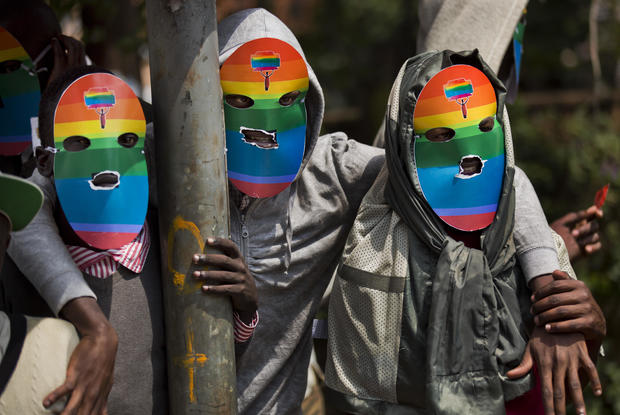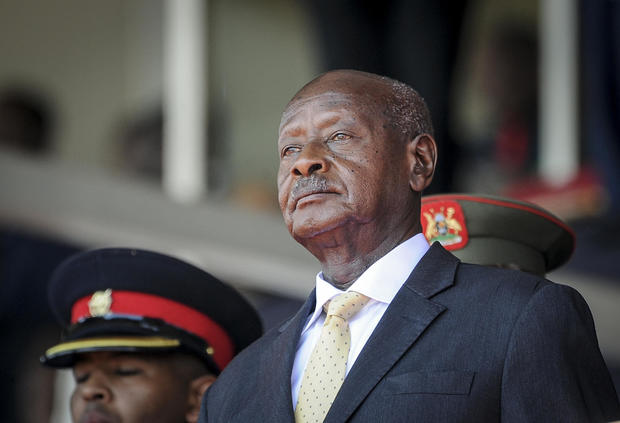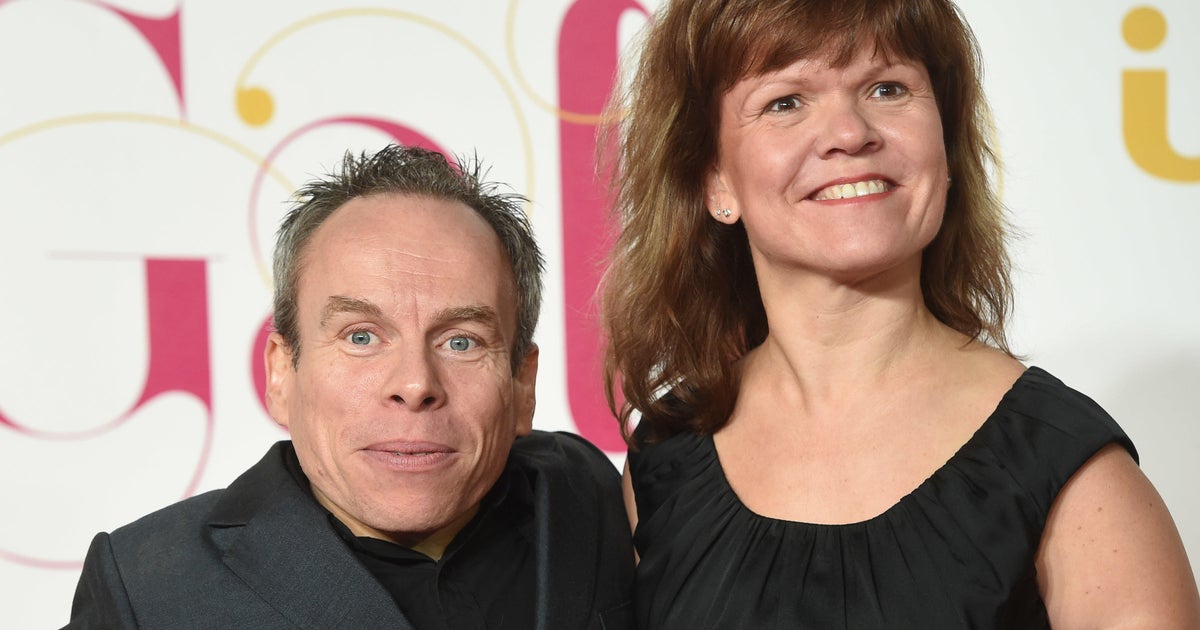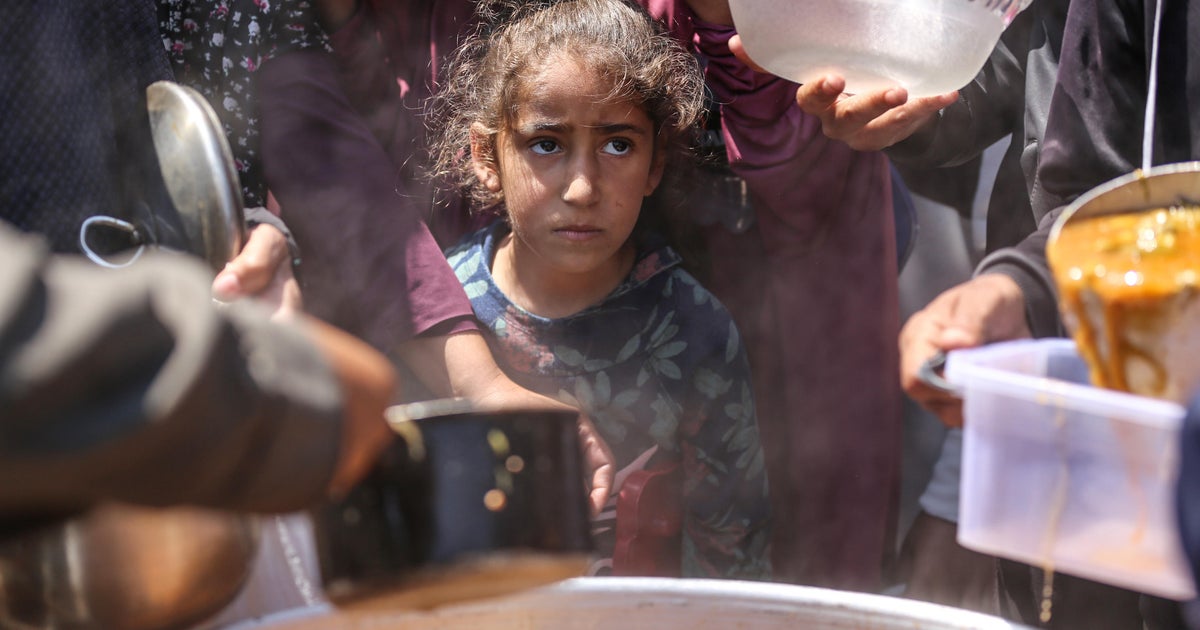Uganda anti-LGBTQ bill that would impose death penalty for "aggravated homosexuality" draws condemnation
The United Nations rights chief on Wednesday urged Ugandan President Yoweri Museveni to block an anti-LGBTQ bill passed this week that prescribes harsh penalties, including death and life imprisonment.
"The passing of this discriminatory bill — probably among the worst of its kind in the world — is a deeply troubling development," Volker Turk, the U.N. high commissioner for human rights, said in a statement.
Uganda's legislature passed the bill late Tuesday in a protracted plenary session during which last-minute changes were made to the legislation that originally included penalties of up to 10 years in jail for homosexual offenses.
In the version approved by lawmakers, the offense of "aggravated homosexuality" — a broad term which is used to describe same sex acts with children or people with disabilities, or serial offenders or people with HIV — now carries the death penalty. Aggravated homosexuality applies in cases of sex relations involving those infected with HIV, as well as minors.
According to the bill, a suspect convicted of "attempted aggravated homosexuality" can be jailed for 14 years, and the offense of "attempted homosexuality" is punishable by up to 10 years.
In Washington., National Security Council spokesman John Kirby said if the law were enacted, the U.S. would "have to take a look" at imposing economic sanctions on Uganda. He noted that this would be "really unfortunate" since most U.S. aid is in the form of health assistance, especially anti-AIDS assistance.
The bill was introduced last month by an opposition lawmaker who said his goal was to punish "promotion, recruitment and funding" related to LGBTQ activities in this East African country where homosexuals are widely disparaged. The offense of "homosexuality" is punishable by life imprisonment, the same punishment prescribed in a colonial-era penal code criminalizing sex acts "against the order of nature."
The bill now goes to Museveni, who has 30 days to veto it or sign it into law. He suggested in a recent speech that he supports the legislation, accusing unnamed Western nations of "trying to impose their practices on other people."
"If signed into law by the president, it will render lesbian, gay and bisexual people in Uganda criminals simply for existing, for being who they are," Turk, the U.N. rights chief, said in the statement. "It could provide carte blanche for the systematic violation of nearly all of their human rights and serve to incite people against each other."
White House press secretary Karine Jean-Pierre said Wednesday the United States had "grave concerns" about the bill, adding that it would hamper tourism and economic investment, and "damage Uganda's reputation."
Jean-Pierre added: "No one should be attacked, imprisoned, or killed simply because of who they are, or who they love."
The New York-based Human Rights Watch (HRW) organization condemned the new bill as a further violation of the basic human rights of Ugandans.
"This law is simply not sustainable," HRW Uganda and Tanzania researcher Oryem Nyeko told CBS News correspondent Debora Patta, as it effectively "criminalizes people simply for being who they are as well as further infringing on the rights to privacy, and freedoms of expression and association that are already compromised in Uganda."
Nyeko noted the bill also outlaws the "promotion of homosexuality," effectively censoring anyone advocating for LGBTQ rights or providing financial support to organizations that do so. Individuals associated with such organizations could face up to 20 years' imprisonment.
One of the more punitive provisions is that the legislation makes it a crime not to report someone suspected of participating in same-sex acts to the police.
"Effectively, supportive family members or friends of LGBT people could be imprisoned if they failed to report their loved ones to authorities. If anyone conducts a same-sex marriage ceremony, they could be imprisoned for up to 10 years. If anyone were to rent a room to a gay couple, they could go to jail for 10 years," Nyeko said.
Anti-gay sentiment in Uganda has grown in recent weeks amid alleged reports of sodomy in boarding schools, including a prestigious one for boys where a parent accused a teacher of abusing her son. Authorities are investigating that case.
The recent decision of the Church of England to bless civil marriages of same-sex couples also has inflamed many, including some who see homosexuality as imported from abroad.
Uganda's LGBTQ community in recent years has faced growing pressure from civilian authorities who wanted a tough new law punishing same-sex activities.
The Ugandan agency overseeing the work of nongovernmental organizations last year stopped the operations of Sexual Minorities Uganda, the most prominent LGBTQ organization in the country, accusing it of failing to register legally. But the group's leader said his organization had been rejected by the registrar as undesirable.
Homosexuality is criminalized in more than 30 of Africa's 54 countries.





